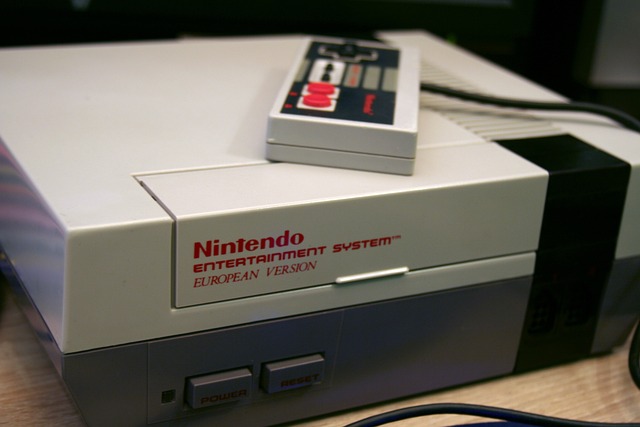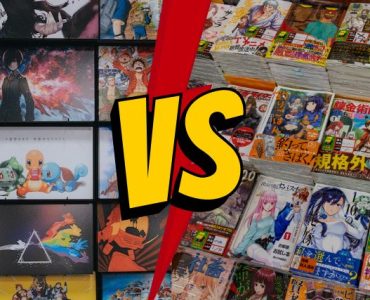Video games have come a long way since the early days of Pong and Space Invaders. Today gaming is a multi-billion dollar industry that has given rise to a vibrant and dynamic culture all its own. From the language and slang that gamers use to the events and competitions that draw thousands of people from around the world. Gaming culture has become a force to be reckoned with. In this article we’ll explore the history elements impact and future of gaming culture.

Gaming culture can be defined as the set of values beliefs practices and artifacts that have emerged around video games and the people who play them. From console gamers to PC enthusiasts to mobile players gaming culture encompasses a wide variety of subcultures and communities. It is an important aspect of the gaming industry shaping the way we play and enjoy video games and influencing the development of new games and technologies.
II. History of Gaming Culture

The early days of gaming culture can be traced back to the rise of arcade gaming in the 1980s. Video game arcades were social spaces where gamers could compete and connect with others who shared their love of gaming. The 1990s saw the emergence of console gaming which further contributed to the development of gaming culture. The rise of online gaming in the 2000s and beyond has created a global community of gamers who can connect and compete with each other from anywhere in the world.
III. Elements of Gaming Culture

A.Gaming communities:
From forums and social media groups to in-person events and conventions gaming communities provide a space for gamers to connect and share their passion for gaming.
B.Gaming language and slang:
Gamers have developed a unique language and slang that reflects the culture around gaming. Words like “noob” and “pwned” have become part of the common vocabulary of gamers.
C. Gaming events and competitions:
From local tournaments to international competitions gaming events bring together gamers from all over the world to compete and celebrate their shared love of gaming.
D. Gaming merchandise and fashion:
Gaming culture has inspired a range of merchandise and fashion from t-shirts and hoodies to collectible figurines and gaming peripherals.
E. Gaming influencers and celebrities:
The rise of gaming influencers and celebrities has given rise to a new kind of celebrity culture around gaming with popular streamers and content creators amassing millions of followers and fans.
IV. The Impact of Gaming Culture

The impact of gaming culture can be both positive and negative. On the positive side gaming culture can bring people together and promote teamwork communication and problem-solving skills. It can also be a form of self-expression and a way for gamers to connect with others who share their interests. On the negative side gaming culture can contribute to toxic behavior and addiction. It’s important to understand the impact of gaming culture in order to promote the positive aspects and address the negative ones.
V. Future of Gaming Culture

The future of gaming culture is likely to be shaped by new technologies and changing attitudes toward gaming. Emerging technologies like virtual reality and augmented reality are likely to have a major impact on the way we play and enjoy video games. The gaming industry will also continue to grapple with issues of diversity and inclusivity working to create a culture that is welcoming to all gamers.
gaming culture is a rich and diverse aspect of our modern culture. From the language and slang that gamers use to the events and competitions that draw thousands of people from around the world gaming culture is a testament to the
read also :
power of video games to bring people together and foster a sense of community. As the gaming industry continues to evolve it’s important to understand the role that gaming culture plays in shaping our experiences as gamers. By promoting the positive aspects of gaming culture and addressing the negative ones we can work to create a gaming culture that is inclusive diverse and respectful of all gamers.
| Section | Content |
|---|---|
| Defining Gaming Culture | Gaming culture encompasses the social, cultural, and economic practices surrounding video games. It includes the ways people engage with games, the communities formed around gaming, and the impact games have on society. |
| Relevance and Importance | Gaming culture has grown exponentially over the past few decades, influencing not just entertainment, but also technology, education, and even social interactions. Understanding this culture provides insights into modern social dynamics and technological advancements. |
Types and Categories
| Section | Content |
|---|---|
| Genres of Video Games | – Action: Fast-paced games requiring quick reflexes. – Adventure: Focus on exploration and puzzle-solving. – Role-Playing Games (RPGs): Character development and story-driven gameplay. – Simulation: Real-world activities emulated in the game environment. – Strategy: Tactical and planning skills to achieve victory. – Sports: Virtual representations of physical sports. – Puzzle: Problem-solving and logic challenges. |
| Platforms | – PC Gaming: Versatile and customizable gaming experience. – Console Gaming: Dedicated gaming devices like PlayStation and Xbox. – Mobile Gaming: Games played on smartphones and tablets. – VR Gaming: Immersive virtual reality experiences. |
| Multiplayer Modes | – Single-player: Solo gaming experiences. – Local Multiplayer: Multiple players on the same device or network. – Online Multiplayer: Players connect via the internet to play together. |
Symptoms and Signs of Gaming Influence
| Section | Content |
|---|---|
| Positive Impacts | – Cognitive Skills: Improved problem-solving and strategic thinking. – Social Connections: Forming friendships and communities online. – Hand-Eye Coordination: Enhanced through gaming mechanics. |
| Negative Impacts | – Addiction: Excessive gaming leading to neglect of responsibilities. – Physical Health Issues: Strain from prolonged gaming sessions. – Mental Health Concerns: Anxiety or depression linked to gaming habits. |
Causes and Risk Factors
| Section | Content |
|---|---|
| Biological Factors | – Genetic Predispositions: Certain individuals may be more prone to addiction. – Neurological Responses: Dopamine release reinforcing gaming behavior. |
| Environmental Factors | – Social Influence: Peer pressure and social circles promoting gaming. – Accessibility: Easy access to games across various platforms. |
| Lifestyle Factors | – Time Management: Poor balance between gaming and other activities. – Stress Relief: Using gaming as an escape from real-life stressors. |
Diagnosis and Tests
| Section | Content |
|---|---|
| Identifying Gaming Addiction | – Behavioral Analysis: Observing changes in behavior and priorities. – Psychological Assessments: Evaluations by mental health professionals. |
| Assessing Gaming Habits | – Time Spent: Monitoring hours dedicated to gaming. – Impact on Daily Life: Assessing how gaming affects personal and professional responsibilities. |
Treatment Options
| Section | Content |
|---|---|
| Medical Treatments | – Therapy: Cognitive-behavioral therapy (CBT) for addiction. – Medication: Prescribed for underlying mental health issues. |
| Lifestyle Adjustments | – Time Management Techniques: Strategies to balance gaming with other activities. – Healthy Gaming Practices: Encouraging breaks and physical activity. |
Preventive Measures
| Section | Content |
|---|---|
| Tips and Strategies | – Set Boundaries: Establishing time limits for gaming. – Promote Alternative Activities: Encouraging hobbies outside of gaming. |
Personal Stories or Case Studies
| Section | Content |
|---|---|
| Real-Life Implications | – Case Study 1: Overcoming gaming addiction and finding balance. – Case Study 2: Leveraging gaming skills for professional success. |
Expert Insights
| Section | Content |
|---|---|
| Quotes from Professionals | – Psychologists: Insights on gaming addiction and mental health. – Game Developers: Perspectives on creating engaging yet balanced games. |
Conclusion
| Section | Content |
|---|---|
| Summary of Key Points | Gaming culture is a multifaceted and influential part of modern society, with both positive and negative impacts. By understanding its various aspects, individuals and communities can foster healthier gaming habits. |
In short gaming culture is more than just a hobby or pastime. It’s a reflection of the values beliefs and practices that have emerged around video games and the people who play them. By understanding and appreciating gaming culture we can gain a deeper appreciation for the role that video games play in our lives and our society. Whether you’re a seasoned gamer or just getting started there’s no denying the power of gaming culture to bring people together and create a sense of community that transcends borders languages and cultures.

Discover a world of inspiration and creativity with facex. From art and design to technology and lifestyle, our platform features diverse content to empower and uplift. Join our community and explore a new perspective today









Add comment